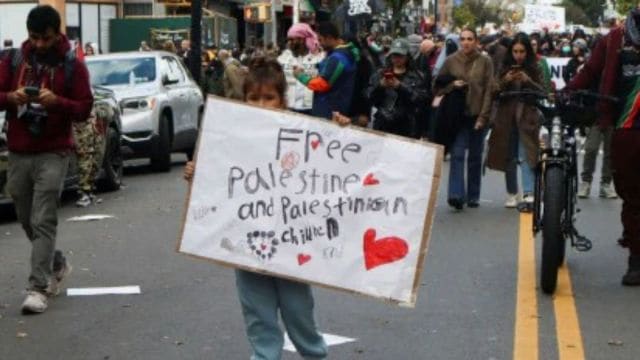‘Moral obligation’: Global universities cut ties with Israeli academia over Gaza war
A growing number of universities and academic bodies across the world are ending links with Israeli institutions because of the war in Gaza, The Guardian reported. According to Gaza’s health ministry, more than 63,000 people have been killed in the territory, most of them civilians. UN experts say parts of Gaza are now facing a […]
 Universities in Brazil, Norway, Belgium, Spain and Ireland have all taken steps to cut ties. (File Photo)
Universities in Brazil, Norway, Belgium, Spain and Ireland have all taken steps to cut ties. (File Photo) A growing number of universities and academic bodies across the world are ending links with Israeli institutions because of the war in Gaza, The Guardian reported.
According to Gaza’s health ministry, more than 63,000 people have been killed in the territory, most of them civilians. UN experts say parts of Gaza are now facing a “man-made” famine, with large areas destroyed by the conflict.
‘A moral and legal obligation‘
Stephanie Adam of the Palestinian Campaign for the Academic and Cultural Boycott of Israel told The Guardian that Israeli institutions are part of “Israel’s decades-long regime of military occupation, settler colonial apartheid and now genocide”, saying there is “a moral and legal obligation for universities to end ties with complicit Israeli universities”.
Universities in Brazil, Norway, Belgium, Spain and Ireland have all taken steps to cut ties. The University of Amsterdam ended its exchange programme with the Hebrew University of Jerusalem, while the European Association of Social Anthropologists said it will no longer work with Israeli institutions.
‘We do not endorse blanket boycotts’
In the UK, France and Germany, few institutions have followed suit. Universities UK said it does not support an academic boycott.
“As a representative body, Universities UK has a longstanding public position of being committed to the free exchange of ideas, regardless of nationality or location.
As such, we do not endorse blanket academic boycotts, as this would represent an infringement of academic freedom,” a spokesperson told The Guardian. The Royal Society also opposes academic boycotts.
‘Disproportionate’
Venki Ramakrishnan, a Nobel laureate and former president of the Royal Society, told The Guardian he has mixed feelings.
“On the one hand, the Israeli government’s approach to Gaza has been hugely disproportionate, harming civilians, including young children, in the thousands,” he said.
“On the other hand, most Israeli academics I know detest Netanyahu and his government. A boycott would penalise those who are not responsible for the actions of the Israeli government, and who in fact are very sympathetic to the plight of Palestinians.”
‘An oppressive system’
Israeli historian Ilan Pappé gave a different view. He told The Guardian that the majority of Israeli academics support the system. “They provide courses and degrees to the secret service, police and agencies of the government that are oppressing the Palestinians daily,” he said.
Pappé described the boycott as “a very harsh and tough, albeit necessary, conversation with the Israeli academic institutions, illuminating for them their responsibility and for being an organic part of an oppressive system”.
Ghassan Soleiman Abu-Sittah, a British-Palestinian surgeon and rector of the University of Glasgow, said many academics are taking matters into their own hands. “The moral outrage about what the Israelis are doing is leading more and more academics to take personal decisions, not to have joint projects with Israelis,” he told The Guardian.
The impact of these boycotts is still being debated. Some Israeli academics say their work remains unaffected, while others warn that research funding and international collaboration could be at risk.
Israel has received nearly €876 million from the EU’s Horizon Europe research programme since 2021, but in July, the European Commission proposed partially suspending Israel’s participation.







